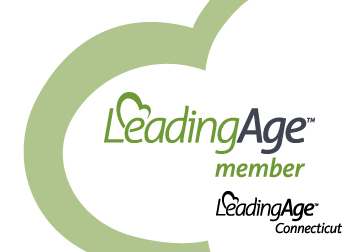In the realm of healthcare, the terms rehabilitation and post-acute care are pivotal, offering a lifeline for individuals recovering from illness, surgery, or injury. Understanding the basics of these essential healthcare components is crucial for anyone seeking a comprehensive approach to recovery and well-being.
1. Defining Rehabilitation and Post-Acute Care
Rehabilitation refers to the process of restoring an individual to their highest level of physical, mental, and social functioning after an illness or injury. This often involves a combination of therapeutic interventions, exercise programs, and medical oversight tailored to the specific needs of the individual.
Post-acute care, on the other hand, encompasses a range of medical and rehabilitation services provided to individuals after a hospital stay. This phase of care bridges the gap between acute care and returning to one’s regular activities. It is designed to facilitate a smoother transition from the hospital to home while promoting recovery and preventing complications.
2. The Role of Rehabilitation in Healing
Rehabilitation is a comprehensive and dynamic process that addresses various aspects of a person’s health. It plays a pivotal role in restoring mobility, improving strength, and enhancing overall functionality. Whether recovering from surgery, a stroke, or a debilitating injury, rehabilitation is tailored to the individual’s unique needs, focusing on maximizing independence and quality of life.
In a rehabilitation setting, healthcare professionals, including physical therapists, occupational therapists, and rehabilitation nurses, work collaboratively to create personalized treatment plans. These plans often include targeted exercises, mobility training, and therapeutic activities to promote recovery and adaptation to any physical or cognitive challenges.
3. Post-Acute Care: A Bridge to Recovery
Post-acute care acts as a crucial bridge between the acute care received in a hospital and the return to normal daily life. After the initial hospitalization, individuals may still require specialized medical attention, monitoring, and rehabilitation. Post-acute care facilities, such as rehabilitation centers or skilled nursing facilities, are equipped to provide these services.
In post-acute care settings, a multidisciplinary team of healthcare professionals collaborates to address the specific needs of each individual. This may include ongoing medical care, physical therapy, occupational therapy, and other rehabilitative services. The goal is to optimize recovery and ensure a smooth transition back to the community or home environment.
4. Tailored Approaches for Individualized Care
One of the strengths of both rehabilitation and post-acute care lies in their ability to provide individualized care plans. Recognizing that each person’s journey to recovery is unique, healthcare professionals assess the individual’s needs, abilities, and goals to create a personalized roadmap for rehabilitation and post-acute care.
These tailored approaches not only address the physical aspects of recovery but also consider the emotional and social well-being of the individual. Emotional support, counseling, and strategies for coping with any challenges are integral components of the rehabilitation and post-acute care process.
5. Community Integration and Long-Term Wellness
Beyond immediate recovery, rehabilitation and post-acute care emphasize community integration and long-term wellness. This involves preparing individuals to resume their daily activities, whether at home, work, or in their community. Education on self-management, lifestyle adjustments, and preventive measures is integral to ensuring sustained well-being.
In conclusion, understanding the basics of rehabilitation and post-acute care is essential for individuals on the path to recovery and those supporting their journey. These interconnected components of healthcare provide not only the necessary interventions for healing but also a holistic approach to well-being, emphasizing the importance of personalized care plans, community integration, and the long-term success of each individual’s recovery journey.
Please contact us today for more information about our rehabilitation and post-acute care programs.
Matulaitis Rehabilitation and Skilled Care is the leading non-profit skilled nursing facility in Northeast Connecticut. We are proud to receive top national rankings and the highest five-star rating from Medicare’s Nursing Home Compare. Our dedicated staff combines renowned care and exceptional nursing skills with a holistic approach. We fully realize that the restoration of your health and well-being after an illness, operation, or injury can be incredibly difficult.
Our long term care features attention to the whole person, assuring individualized care for fullness of living, spiritual welfare, and providing a sense of community with enriching programming. We invite you to learn more about our special smoke-free facility as you consider your own or a loved one’s needs.



